Protest-hit Lebanon Postpones Talks To Pick New PM
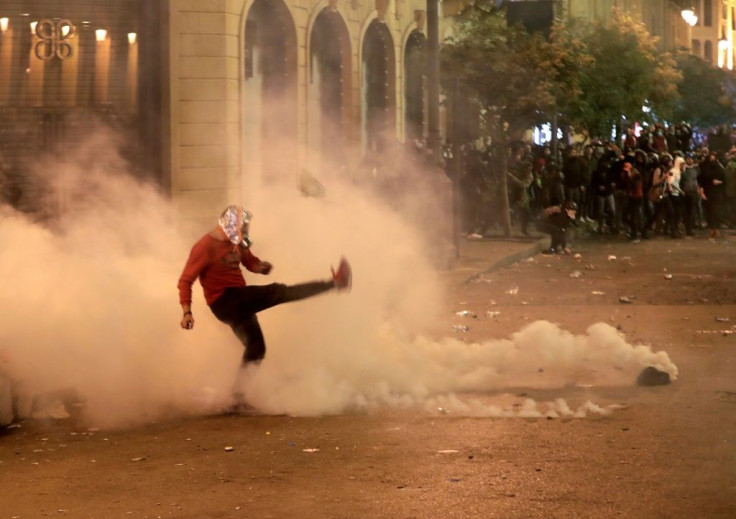
Lebanon's president on Monday postponed consultation to select a new prime minister after weeks of largely peaceful street protests descended into weekend violence, leaving dozens wounded in clashes with security forces.
The government stepped down on October 29 in the face of unprecedented nationwide demonstrations demanding the complete overhaul of a political class deemed inept and corrupt.
On Monday, President Michel Aoun's office said he had "responded to the wishes of (outgoing) prime minister Saad Hariri to postpone parliamentary consultations until Thursday December 19".
Hariri's office said the deferral -- the second this month -- was to avoid "a nomination without any major Christian bloc taking part".
Parliamentary consultations had previously been scheduled for December 9 before being pushed back a week to Monday.
In the latest clashes late Monday, young supporters of the country's two main Shiite parties tried to attack the anti-government protest camp in central Beirut, local television reported.
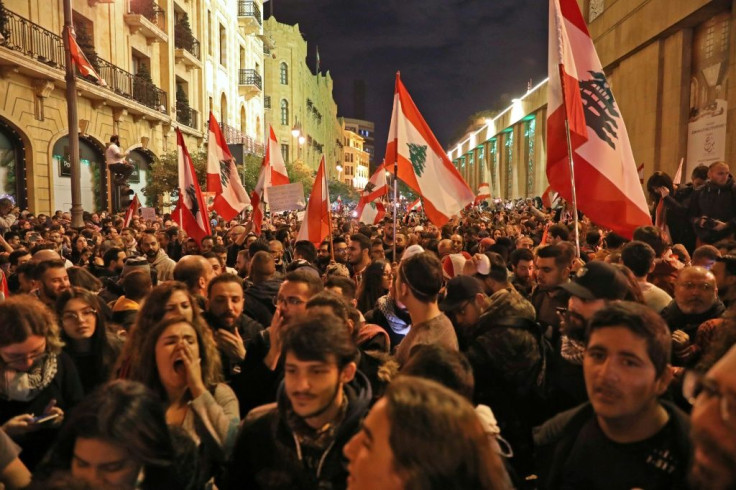
Live footage showed dozens of youths -- whom reporters described as Hezbollah and Amal supporters -- lob rocks in the direction of riot police on the edge of the main protest square, before they retaliated with teargas.
A thick column of grey smoke rose up from a small car engulfed in flames reportedly overturned by the counter-protesters.
Earlier on Monday evening, dozens of protesters had gathered near Hariri's residence refusing his return as prime minister -- a scenario put forward in the past week.
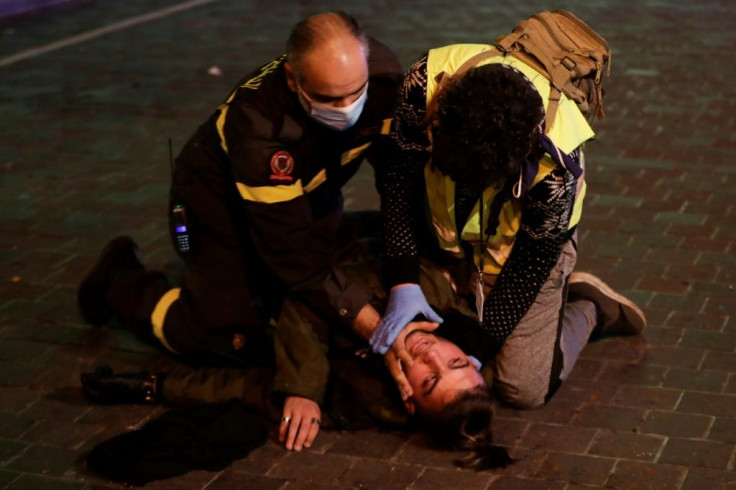
"We're protesting here until they form the government people want," made up entirely of independent experts, said activist Claude Jabre.
Cabinet formation can drag on for months in the multi-confessional country, with Hariri taking almost nine months to reach an agreement with all political sides for the last one.
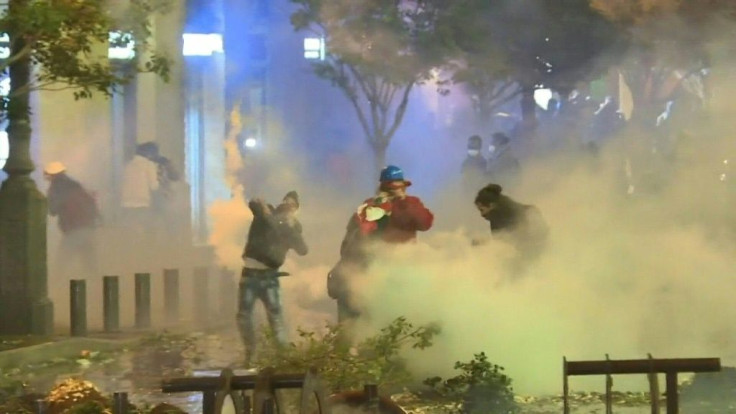
Consensus on the name of a new prime minister is frequently reached before parliamentary consultations begin.
According to a complex political system that seeks to maintain a fragile balance between religious communities, Lebanon's prime minister is always a Sunni Muslim.
The names of various potential candidates to replace Hariri have been circulated in recent weeks, but bitterly divided political parties have failed to agree on a new premier.
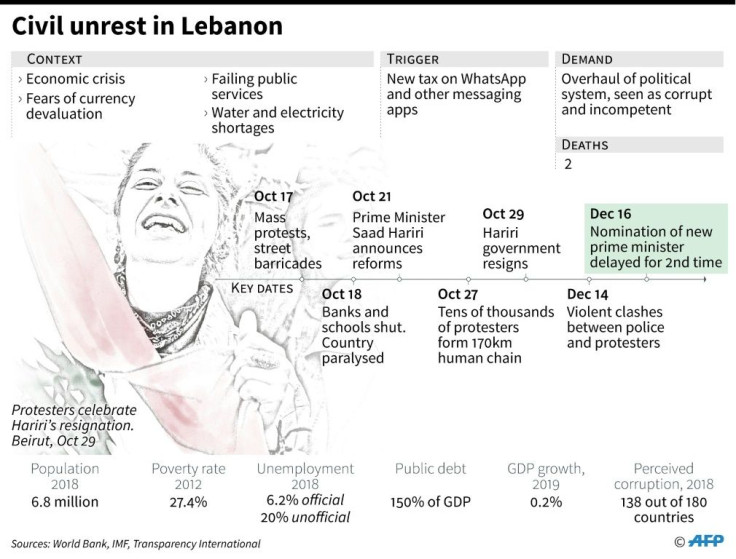
Earlier this month, the Sunni Muslim establishment threw its support behind Hariri returning.
The powerful Shiite movement Hezbollah, a key political player with ministers in the outgoing government, has also supported the outgoing premier or someone nominated by him.
But it has repeatedly dismissed the idea of an exclusively technocratic cabinet.
The latest delay to the consultations on a new premier came the day after clashes near parliament in the capital Beirut between protesters and security forces.
Rallies had begun peacefully with protesters waving Lebanese flags and chanting "Hariri will not return", but escalated later, with demonstrators throwing water bottles and firecrackers at the security forces who responded with tear gas and water cannon.
The Lebanese Red Cross said it treated 45 people on site.
"Twenty-eight people were transported to hospital," the organisation's director George Kettane told AFP.
On Monday, the Lebanese army condemned the "widespread chaos" the night before, reporting "vandalism and destruction of private and public property".
Saturday evening had likewise seen dozens of people hurt when security forces used tear gas and rubber bullets to disperse demonstrators who tried to breach metal barricades near the legislature.
Interior Minister Raya El-Hassan on Sunday ordered security forces to open a "rapid and transparent" inquiry into what was the most violent episode since the anti-government protests began.
The UN envoy to Lebanon, Jan Kubis, on Monday called for an investigation into "excessive force" used against demonstrators.
The international community has urged Lebanon to speed up cabinet formation to address deepening economic troubles including a dollar liquidity crisis.
Public debt has reached more than $86 billion, over 150 percent of gross domestic product, according to the finance ministry.
The World Bank has warned the proportion of people living in poverty could climb from a third to half the population.
© Copyright AFP 2024. All rights reserved.




















